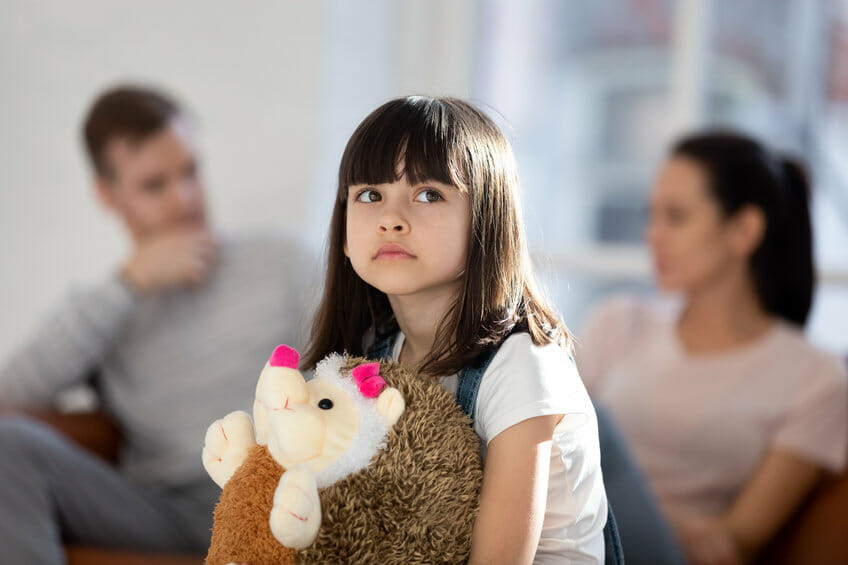There’s no doubt life during the COVID-19 pandemic took a toll on the family dynamic. And the pandemic has had an even bigger impact on family law cases.
A new survey from the American Academy of Matrimonial Lawyers (AAML) shows that closing family law courts during the pandemic has increased pent-up demand for divorce, and 45% of those surveyed believe the main reason for the upswing in their case numbers was their clients’ enforced isolation with a spouse during the pandemic.
That doesn’t even take into account shared-custody problems that arose over pandemic-related issues: conflicts over masks, social distancing, and vaccinations for children.
READ ALSO: Most Influential Women: Tonya MacBeth, Burch & Cracchiolo
Tonya MacBeth, a shareholder at Burch & Cracchiolo, talked with Az Business about some of the family law issues that have arisen from the pandemic.
Az Business: What has been the biggest impact the COVID-19 pandemic has had on your family law practice?

Tonya MacBeth: It’s people having to deal with the changing circumstances. There’s so much happening in terms of schools and vaccinations. Parents who weren’t getting along all that great before are now trying to find some area of agreement on very complex issues, and it’s challenging.
AB: Have you seen the actual divorce rate rise because of couples who were forced to be together more during the pandemic?
TM: The statistics are showing that people are getting divorced at a higher rate, but it was pretty high already. I think the families that were having trouble in quarantine were going to have trouble anyway.
AB: Can you talk a little bit about the cultural divide that COVID-19 brought to the forefront?
TM: That’s one area where you’re right. Quarantining really did bring that to a full focus. Before, people kept their own political views or their mild disagreements to themselves. It’s so vocal and so dynamic in the community that people are speaking their minds a little bit more, and that’s causing some significant challenges in making decisions, such as when the children are eligible to be vaccinated, will they be vaccinated?
The school may not be mandating masks, but one parent sends the child to school with a mask and the other parent disagrees and discourages mask-wearing. It’s causing the children to live in two separate parallel universes in a way that always existed, but now is right in their faces.
AB: How do you counsel your clients when these issues come up?
TM: The issue is, “What’s a big enough problem to get in front of a judge? Will your particular judge really have any sympathy for your particular position?” If you’re in the courtroom of a judge who takes the philosophy that people should just put their differences aside and get along on behalf of the children, what he or she considers to be petty disagreements will not carry much water in their courtroom. And you can really suffer some consequences, including having to pay the other person’s attorney’s fees.
But if you have, say, a medically vulnerable person in your home — whether that’s the child or some other member of the family — and you’re asking for masks to help protect that vulnerable person, the judge may have more sway. So, an attorney really has to look at the depth of the problem and the consequences of the opposite party’s choice, then decide whether or not it’s worth walking into a courtroom with.
AB: COVID-19 has obviously impacted people’s income. What impact has that had on spousal support issues?
TM: It’s a difficult process because the payer may be suffering from a lower income at the same time that the person who would be receiving doesn’t have the same options that they did for earning before the pandemic. There are a lot of people who are in middle to late middle age, who would qualify for spousal maintenance, but there just isn’t the income to support the spousal maintenance necessary to deal with the increase in housing costs, the change in the job market. An older person could also be nervous about being in a public-facing position because of increased COVID-19 risk, but they’re not equipped with their own skills to do remote work jobs.
So, they’re facing that dynamic where they need employment, but they can’t really be out in the world the same way we would like to be. Now, hopefully with very effective vaccines, the workforce is going to start moving around. There are a lot of people who are reporting that they’re going to quit or they’re going to change jobs when things settle down a bit, and that should create some liquidity in the employment market.
AB: Have daycare issues come into play with that as well as the support?
TM: Absolutely. With the younger people who are qualifying for support, being able to manage childcare needs while in the workforce is extremely difficult. Whereas the courts used to presume that children would be in childcare, that was just part of the American life experience. Now, that presumption is not necessarily true or available.
AB: Phoenix was No. 1 in the country for the biggest housing price increase last year. How has that impacted family law?
TM: Usually, the house is the largest asset in the marital community, and it needs to be divided. So, people have to buy out the other person or the house has to be sold and the proceeds split. A lot of people don’t have the money to buy out their spouse with this jump in pricing, and appraisals haven’t necessarily caught up with the market. So there’s a lot of pressure to just put the house on the market and see if it’s going to get bought up.
But remember, when you have this one house, now there are two people trying to buy two houses, or rent, which is extremely expensive in the Valley as well. So, that money isn’t going as far as it used to. It’s definitely making people anxious and concerned about the future. I see that as the biggest real impact on my practice — moving people through the decision-making process is more difficult because of their own inherent concerns about what the future will bring.
AB: What do people need to keep in mind if they are thinking about getting a divorce now in the middle of a pandemic?
TM: Once you make the emotional decision to get a divorce, then you need to get a good lawyer to help you make rational, financial decisions and to let you understand what the law would likely do if you were placed in front of a judge so that you can formulate a plan for the division of the marital community that is based in reality, in good advice, and you can move forward successfully under that rubric.
But I think most people need to understand they don’t have to solve everything before they take that first step.
AB: How about the parents who are already divorced? One parent wants to get a vaccine, the other parent doesn’t. One parent wants a mask, the other doesn’t. What advice do you have for them?
TM: It’s a real challenge. Medical decision-making is part of most parents’ joint legal decision-making plan, in which everybody has an equal opinion. So, breaking those ties on vaccines, I think, is going to be a big challenge coming up for the family law practice.
When vaccinations become a precursor to, say, participation in certain activities, children are going to have more of a say, but for kids 12 and younger, that’s going to be a very difficult challenge for the courts. And I can’t really predict what each individual judge here in Maricopa County will do, but I expect we’re going to have to bring experts in to talk about whether or not a vaccine’s in the best interest of a particular child in a particular family and not try to say vaccines as a whole are good or bad, but to really individuate that question before the court.




